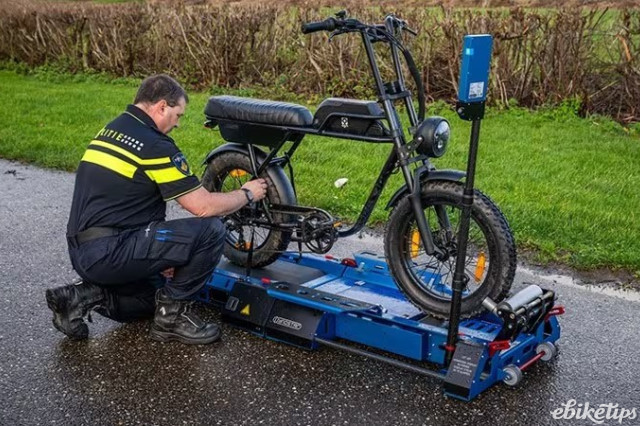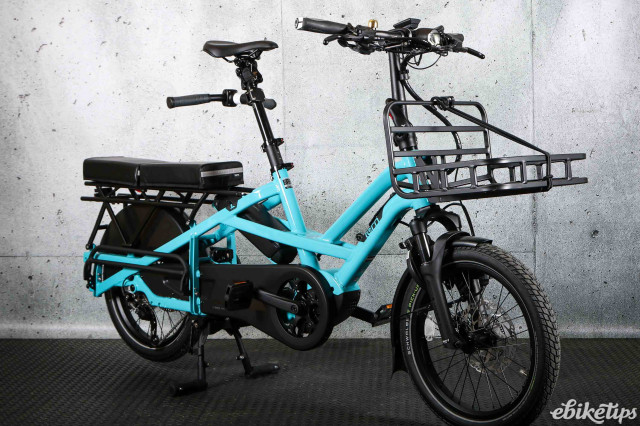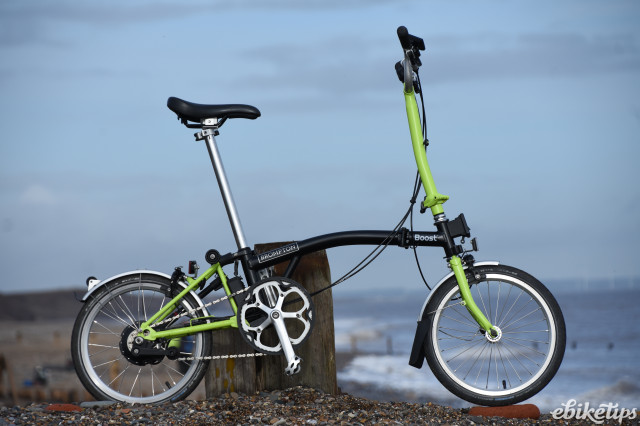Dutch police are using roller test benches to check the maximum speed of mopeds across the Netherlands, and they can also test whether electric vehicles, such as e-bikes, speed pedelecs and fat bikes, comply with the applicable legislation on speed.
The 247 new devices have been rolled out partly in response to an increase in the number of accidents resulting in serious injuries to cyclists in recent years. 2022 also saw the highest number of fatal bike accidents ever, said police, adding that, "these figures more or less keep pace with the rise of the electric bicycle and other electrically powered two-wheelers".
The roller test bench has two settings, mopeds or electric vehicles, with mopeds and light mopeds checked for a maximum speed. Police don't check the speed of electric vehicles such as e-bikes, fat bikes or speed pedelecs, instead they assess the moment at which the pedal assistance stops.
The legal motor power assistance limit for e-bikes and fat bikes (categorised as an electric bike with fat tyres) in the Netherlands is 25km/h (15.5mph) and for speed pedelecs it is 45km/h (28mph).
Police said fat bikes in the Netherlands are usually sold as bikes with pedal assistance, but many have assistance which enables them to exceed the legal limit. Some models also have a motor of more than the maximum allowed 250W or a throttle that allows riders to go faster than 6km/h (3.7mph) without pedalling, which police said is also not allowed.
If the rider of an electric bike or speed pedelec is in violation, the police can issue a fine of €290. If there have been multiple violations, the police may also confiscate the bike.
> Best electric bikes under £3,000 2024 – our pick of the best e-bikes under £3k


 ).
).


